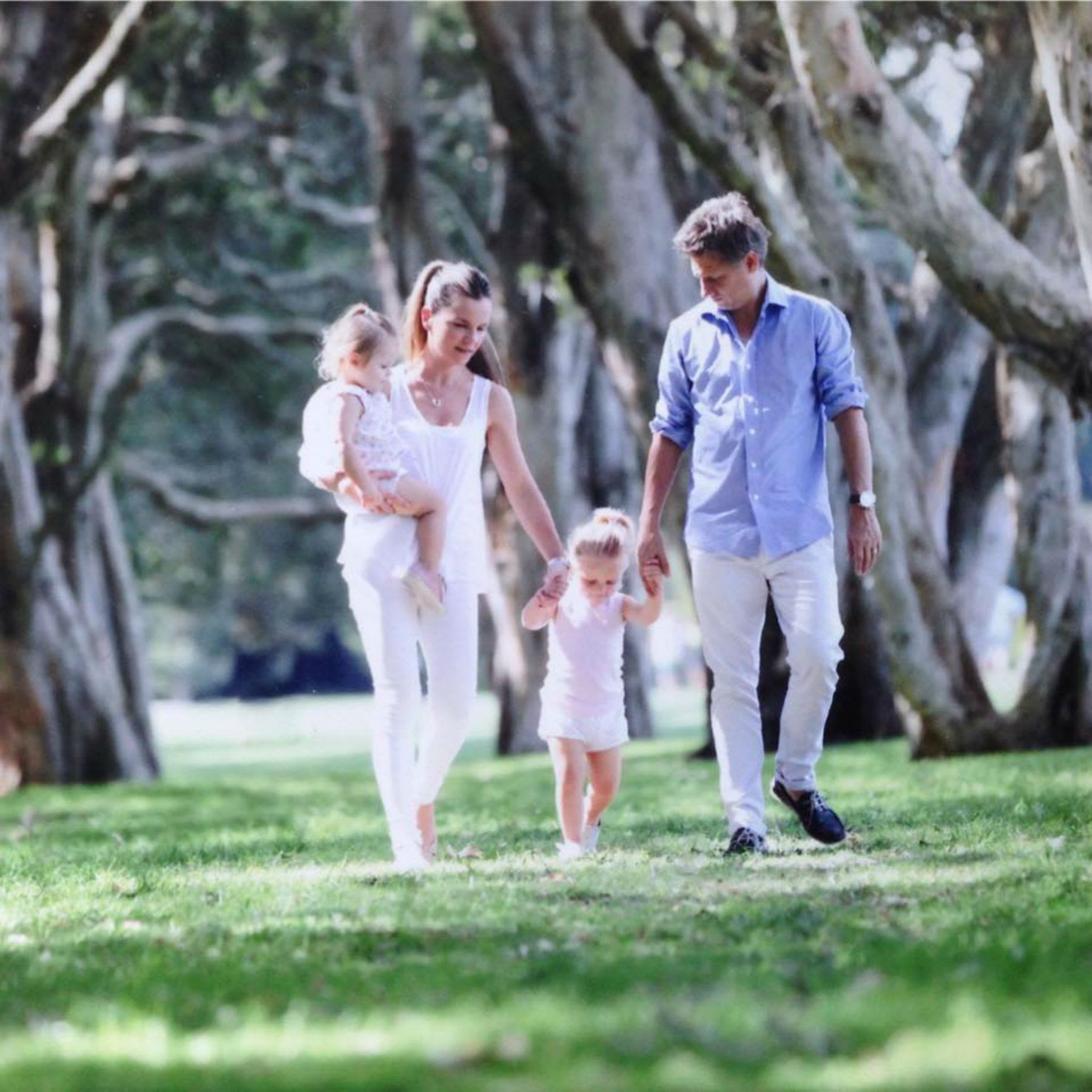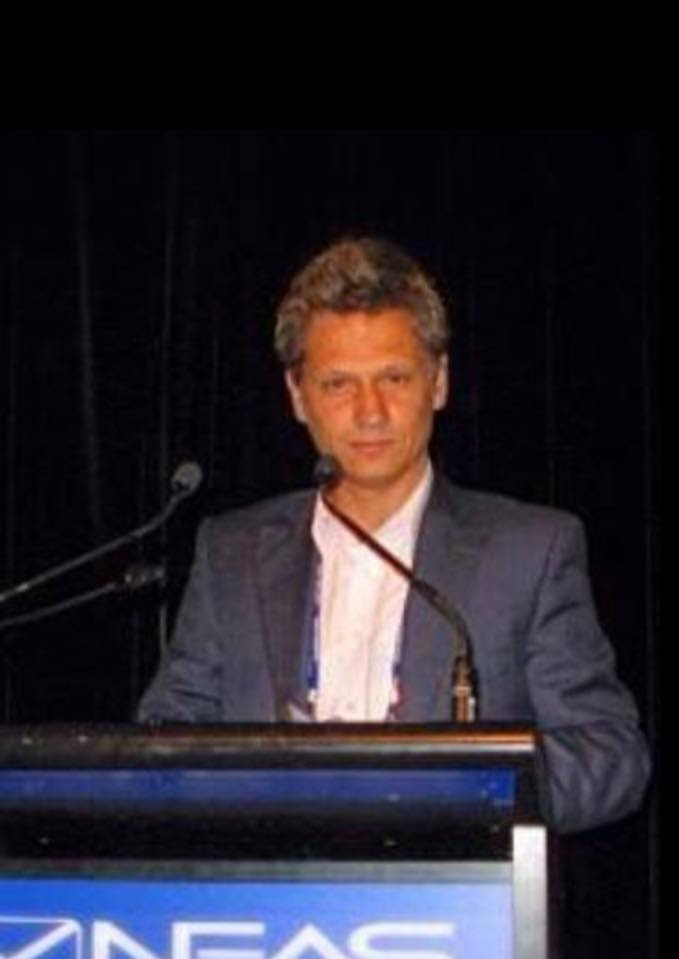The Croatian diaspora is an endless source of inspiration and hope for the homeland despite the frustrations that constantly arise from a rather stark neglect by Croatia to effectively lead ongoing and consistent campaigns that keep the homeland/diaspora relationship a vital part of the homeland life. As to inspiration and hope, Australian Croatian diaspora fits this bill, as do all others. Croatia has particularly neglected the diaspora in the past 15 years especially and particularly so the second and third generations that would slip away if it weren’t for that inspiration and hope whose source and nourishment are still in the diaspora, not in Croatia.I have once again witnessed the power of the love for Croatia in the story of Sydney born and based Eugene Brcic Jones, who is about to take his young family to live in Croatia and I interviewed him. I was utterly intrigued by the fact that this young family settled with living in Sydney is planning to uproot itself and head for Croatia. Eugene’s answers to my interview questions are inspirational and witty and I thank him for his candour.
1. Eugene Brcic Jones, tell us about yourself?
Born and educated in Auburn, Sydney, 1972. Parents are from the hinterlands between Sibenik-Zadar, Selo Budak and Velim, near Stankovci in Croatia. Mum and dad met in Zagreb, married there and moved to Australia in 1969. I went to Catholic school Marist Brothers, did my High School Certificate/HSC with 92 percentile success, then enrolled in the Business degree at University of Technology Sydney. My family moved back to Croatia in August 1991, last commercial plane into Pleso airport in Zagreb before the war erupted (I was 18).
2. How many times have you been to Croatia?
Been twice in youth, at the age of 4 and 12 before settling again in '91 at 18. Dad bought a house in Zadar in 1983, and has been hosting tourists in five apartments ever since then. My family (sister Suzi, one year older) has holidayed there every year since 91.
3. How would you describe your knowledge of and any connection you may have to Croatia and Croatians?
I was very active in the Croatian community before moving to Croatia - rain, hail or shine I was at the Croatian church, picnics, soccer and other events. Despite my passion for soccer, my parents insisted I go to the Croatian school instead of soccer or folklore dancing.
(An interesting tidbit, I was a hot-headed teenager rebel running rampant inside the Yugoslav consulate yard in Sydney protesting, demanding independence for Croatia, when Josip Tokic, a Croatian school colleague, got shot in the neck by a Yugoslav guard in December 1988.) 4. How would you describe your field of professional expertise/the work that you do?
We were initially to settle in Zadar and enrol in local university, but bombing and fighting deterred our southward march. We signed into “filozofski faks” (Faculty of Arts equivalent) Zagreb and sister and I completed bachelor of English language and literature degrees. I joined Mladez HDZ (HDZ Youth), holding senior positions for students, before volunteering for the war effort. However, I was told I was too young and had never handled a weapon to boot, so i was sent to the Foreign Press Bureau to work with foreign journalists. At this time I also worked with the government office with the UN and EU (Council of Europe) as a liaison officer on the frontlines. This entailed translating for EU officials/military attaches with 'Krajina' generals deep in occupied Croatian territories.Instead of returning to Australia upon completion of studies, I took a job with the Associated Press and became a foreign correspondent covering the region and wider for 15 years. I also worked for the New York Times and other global news outlets. I was fortunate to cover every major leader of the time, from Thatcher, Kohl, Mitterand, Bush to Clinton, Schroeder, Blair, Gorbachev, Putin, etc. as well as other high profile persons like Pope John Paul II (three times), Prince Charles, King Khomeini, Shimon Peres, Dailai Lama, Maradona, Beckham, Ronaldinho, Zidane, Schumacher, Carl Lewis, Ivanisevic, Becker, McEnroe, Nadal, Kostelic's, Petrovic, Kukoc, Radja, Linda Evangelista, Naomi Campbell.. In 2008, when the global financial crisis hit, I had the choice to either continue in news in hotspots like Iraq or Afghanistan or reinvent myself in a new career, which I did, crossing over into marketing/communications/PR. I worked for KPMG, Heineken and Red Bull, as well as trying my hand in business (a high-end tourist agency PartyCroatia.com and an organic office cleaning company, Blist Cleaning) before moving back to Sydney in 2010.
5. You have a young family here in Australia and you are planning to move to Croatia soon, taking them with you. Why did you decide move back to Croatia?
It appears Croatia is experiencing a revival of sorts and I'm really keen to have my wife (Australian-Polish) and kids, Eden 3, Emerson 2, see where I spent the most beautiful days of my youth. Besides, we are tired of the rat race in the West, the alienation and poor social fabric.I've convinced my wife (and showed her on holidays) that life in Croatia is much more substantial in so many ways.Our souls have a predilection for Mediterranean living, simple but highly interactive with friends.
6. What do you think some of the best things about living in Croatia will be?
Being immersed in a culture that is alive and vibrant, plus Europe is at your doorstep. We love the coffee and smoke, perve and complain, reflect and contemplate, philosophy of life. It beats sitting at a table, fiddling on your smart phone, taking photos of your food, and pretending to be enjoying your outing in stone-cold silence.
7. What do you think you might miss from living in Australia while you are living in Croatia?
Family (Michelle's parents, brothers and nieces; my sister and two nieces) and our newly renovated home.
8. Are there any hardships or difficult aspects that you think you and your family might encounter in settling into Croatia and if so what do you think they might be?
Croatia can be a tough place if you are unprepared for the mentality. It can be harsh and cynical. There is also the socialist legacy that hampers everyday affairs. Also, you need a good financial safety-net as work that pays well enough is not easy to come by despite cost of living being lower than in Australia.
9. In planning your moving to Croatia have there been any particular difficulties with official processes or red tape that you believe could have been done better?
Perhaps I should have been more enterprising in getting Croatian documents for the family. I may encounter serious problems at the airport as we have one-way tickets but no Croatian passports, meaning we may not be allowed to travel. We need return tickets or visa. Since Aussies don't need a visa, we have nothing to show we are returning or are allowed stay in Croatia for more than 90 days. The Consulate in Sydney has said: “tough titties”, which is sort of what I expect from the Croatian bureaucracy, so we'll think of something. The lesson is that there is no use stressing. “Snađi se druže” (figure it out buddy), good practice for us becoming resourceful - one of the most prized traits in Croatia.
10. The move you are making by going to Croatia is a significant and large one – culture, language – different to Australia, how much adjusting will your family need to fit into everyday life in Croatia and do you already perhaps know people there who may ease the path into settling there?
After 20 years in Croatia, the onus is on me to ensure that my family feels completely at home in our new adventure. We visited Croatia in 2015 and during 3 months travelled extensively, appreciating every corner of the country, the lifestyle and culture. I have a wide network of friends and we stayed in Zagreb after summer, investigating life outside of holidays to convince Michelle that life truly was less stressful and extremely social, not just during summer.As many of my friends are also from diaspora or expats, the language was no barrier (Michelle was surprised that everybody knew and readily spoke English).She has already forged some friendships. It's also a great incentive to have so many exciting cities in Europe to visit during the year for weekend trips, while the ski slopes are also at your doorstep. (In fact, while living in Zagreb, I often used to snowboard on Sljeme before going to work, that's how close and convenient everything is).
11. Do you have any advice for people contemplating on moving to Croatia from Australia? What would be your top three advices?
1. Go and experience what you anticipate would be your lifestyle i.e. rituals outside of holidays. Ignore the average; investigate how your opposite number lives in Croatia - someone in a similar situation to yours.
2. Choose a big city, it's very difficult to acclimatise to a small surrounding with limited options and sympathy for your needs and wants. (Personally, it's a big ask to live anywhere besides Zagreb as nostalgia is bound to hit if you feel like you've sold yourself short in a region of limited potential. Of course, my sentiments apply more to young people seeking careers and social events throughout the entire year than retirees).
3. Relax and accept that Croatia is a different country, not a potential little Switzerland, America or Australia. It is what it is, warts and all. There are plenty of unsavoury aspects in a transitioning former communist country, so be patient, water off a duck's back, and you will fall madly, deeply, truly in love with your imperfectly beautiful new homeland.
12. Have you ever contemplated on issues such as being an ex-patriot living away from your homeland and what would be the best way to maintain a connection with the homeland while living away? What do you think countries of “Homeland” category could best offer ex-patriots living abroad to keep them interested in either doing business with the homeland or returning to the homeland to live?
I have contemplated this question ample times, and it has been a huge source of frustration. It is as if distance from the homeland hardens your heart, your feelings, it makes people more extreme. Idealism turns to nationalism and patriotism mutates into a form of racism. People need to step out of the time warp, Croatia is changing since our parents left, there is so much going on that a gap has formed between both camps, exacerbated by politics on Markov Trg and Croatian clubs adorned with Pavelic and Ustase symbols and insignia abroad.Croatia needs young urban professionals with a healthy love of the country from diaspora to act as an engine of know-how, experience and foresight. If they are unable to migrate an add their stone to the mosaic, they should be a bridge between two forward-thinking models shaping its future, rather than separate poles stuck in 1945.
Prepared and written by Ina Vukic
|
يسوع المسيح هو الطريق والحق والحياة. وساقوا يسوع إلى رئيس الكهنة. فاجتمع إليه جميع رؤساء الكهنة والشيوخ والكتبة. وتبعه بطرس من بعيد إلى داخل دار رئيس الكهنة، وكان جالسا مع الحراس يستدفيء عند النار. وأخذ رؤساء الكهنة والمجلس الأعلى كله يبحثون عن شهادة على يسوع ليقتلوه، فلم يجدوا. فقد شهد كثيرون عليه زورا، ولكن شهاداتهم كانت متناقضة.
četvrtak, 9. veljače 2017.
TRULY IN LOVE WITH REPUBLIC CROATIA
Pretplati se na:
Objavi komentare (Atom)




Nema komentara:
Objavi komentar